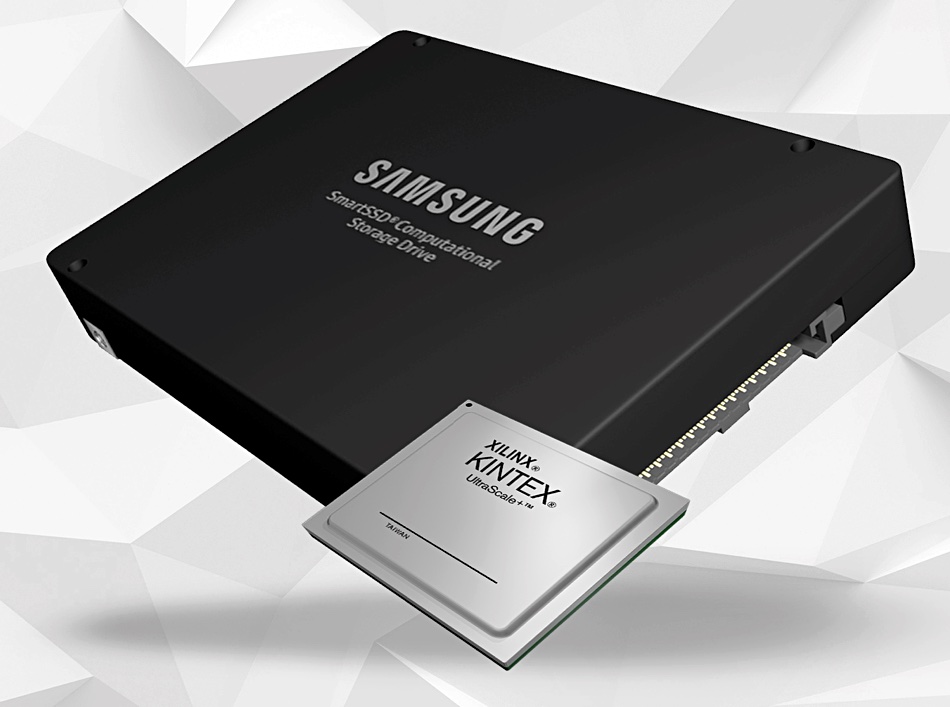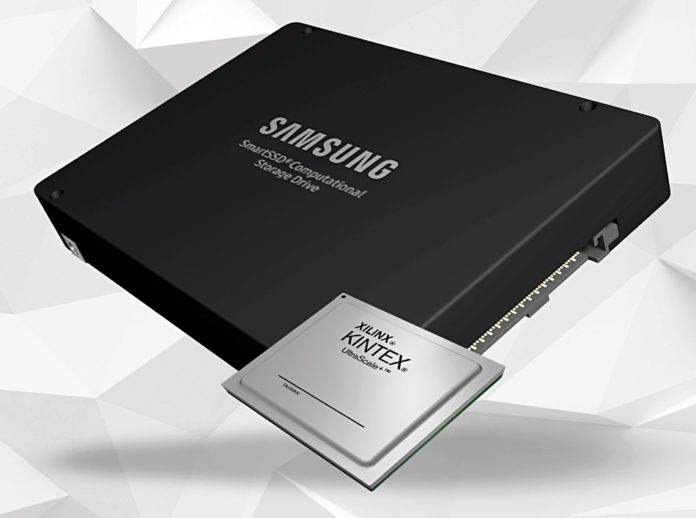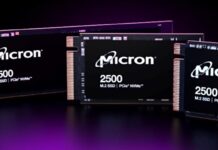Samsung has announced the SmartSSD CSD flash drive, a compute-on-storage device that uses a Xilinx FPGA to offload a host server’s CPU. Xilinx will sell the drive.
Jim Elliott, corporate SVP of Memory Sales and Marketing at Samsung Semiconductor, said in a press statement: “The industry is beginning to realise just how much the SmartSSD CSD will be able to boost performance in the datacenter and far beyond, and with the latest Xilinx tools for application development we anticipate dramatic growth in a wealth of acceleration applications.”

Samsung launched the first generation SmartSSD in October 2018. This drive.has a PCIe Add-in-Card (AIC) format, features a Xilinx Zynq FPGA with ARM cores and uses 3D NAND organised in TLC mode. Samsung and Xilinx jointly developed a runtime library for the Zynq FPGA.
The new 4TB CSD flash drive comes in a U.2 (2.5-inch) format with a PCIe gen 3 x4 interface. It replaces the Zync FPGA with a newer Kintex UltraScale+ KU15P FPGA, which does without the Arm cores. Instead, it has API-driven programmability and new software libraries to enable faster computational storage development. There is also a faster SSD controller.
Thanks to the U.2 format, up to 24 CSDs can be fitted into a 2U server – many more than the first generation SmartSSD. This was limited by PCIe slot availability, resulting typically in six or fewer SmartSSDs per server.
So, 24 x 4TB CSDs can hold 96TB of raw data, and more with compression. This should mean that the drives can now do the data processing – and in parallel – freeing the server main memory from many tasks. The CSD can increase its capacity threefold with compression, according to Xilinx, but this of course depends upon the data type.
With all these enhancements, the SmartSSD CSD can accelerate processing performance 10x or more for applications such as database management, video processing, artificial intelligence layers, complex search and virtualization. Xilinx suggests SmartSSD CSDs with Bigstream’s hyper-acceleration layer allows customers to increase speed up to 10x on Apache Spark analytics workloads.
Xilinx partner Eideticom’s NoLoad SSD uses the SmartSSD CSD to provide up to 10x compression at line-rate while using 70 per cent less server CPU resource. Deployment requires no application changes and it ties directly into any file system.
The NoLoad software framework enables applications such as Databases (Hadoop, RocksDB, Cassandra and MySQL) to offload server CPU storage tasks.
SmartSSD CSDs are available for pre-order today and begin shipping with general availability in January.








